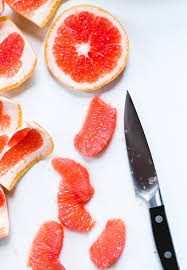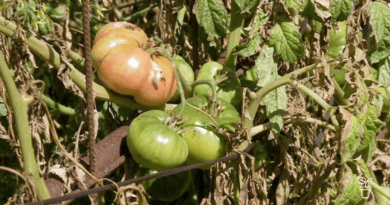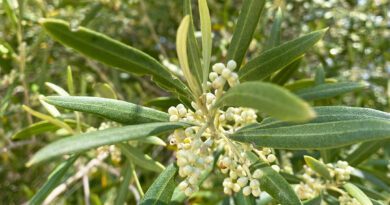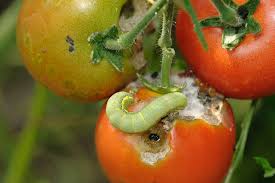Grapefruit Membranes: Economic Importance, Uses and By-Products
Grapefruit membranes refer to the thin, translucent layers of tissue that separate the segments of a grapefruit. These membranes are also sometimes called “pith” or “pulp membranes.” They are composed of pectin, cellulose, and other fibrous materials that give them their texture.
Grapefruit membranes can have a slightly bitter taste, which is why many people choose to remove them when eating grapefruit. To do this, you can use a knife or a grapefruit spoon to carefully separate the juicy segments from the membranes. This process is often referred to as “segmenting” the grapefruit.
Some people also choose to use grapefruits membranes in various culinary applications, such as making citrus marmalade or candying the membranes to create a sweet and tangy garnish. The choice to keep or remove the membranes depends on personal preference and the intended use of the grapefruit in a recipe.
The Economic Importance and Uses of Grapefruit Membranes

Grapefruit membranes, like those of many citrus fruits, offer various economic benefits and practical uses. These membranes are not just waste byproducts; they can be utilized in several ways.
Here are some of the economic importance and uses of grapefruit membranes:
1. Pectin Production: Grapefruits membranes are rich in pectin, a natural polysaccharide used as a gelling agent in the food industry. Pectin is a crucial ingredient in making jams, jellies, and fruit preserves. Extracting pectin from grapefruit membranes can be a cost-effective alternative to commercially available pectin sources.
2. Citrus Oils: The peel and membranes of grapefruits contain essential oils, which are valuable in the fragrance and flavor industries. These oils can be extracted and used as ingredients in perfumes, cosmetics, and food flavorings.
3. Pharmaceuticals: Grapefruits membranes contain bioactive compounds, such as antioxidants and flavonoids, which have potential health benefits. These compounds can be used in the pharmaceutical and nutraceutical industries to develop dietary supplements and medicines.
4. Waste Reduction: Utilizing grapefruit membranes helps reduce food waste. Byproducts from the juicing or processing of grapefruits can be repurposed, contributing to sustainable and environmentally friendly practices.
5. Animal Feed: The dried grapefruit membranes can be used as a component in animal feed. They provide a source of dietary fiber and some essential nutrients for livestock, potentially reducing the cost of feed production.
Read Also: Dates Trunk: Economic Importance, Uses and By-Products
6. Biodegradable Materials: Researchers are exploring the use of citrus peel and membrane extracts to create biodegradable plastics and packaging materials. These materials have the potential to replace traditional plastics, reducing environmental pollution.
7. Composting: Grapefruits membranes, being organic matter, can be composted. Composting helps enrich soil and reduce the need for chemical fertilizers in agriculture.
8. Biofuel Production: Citrus waste, including grapefruits membranes, can be converted into biofuels through processes like anaerobic digestion or fermentation. This offers an eco-friendly alternative to fossil fuels.
9. Cosmetic and Skincare Products: Grapefruit extracts are used in cosmetic and skincare products due to their antioxidant properties. They can be found in various products, such as creams, lotions, and serums, to promote healthy skin.
10. Flavor Enhancers: Grapefruit membranes can be used to make flavor extracts and concentrates, which can be added to a wide range of food and beverage products, including soft drinks, candies, and desserts.
11. Cleaning Products: Citrus extracts from grapefruit membranes are used in the production of natural cleaning products. They serve as effective degreasers and provide a pleasant citrus scent to cleaning solutions.
12. Research and Development: Grapefruits membranes are also valuable in scientific research. They can be used in experiments related to food science, chemistry, and biology to study various phenomena and develop new products.
The Products and By-products That Can Be Derived From Grapefruit Membranes
Grapefruits membranes, like many fruit by-products, have a range of potential uses and can yield various products and by-products. These can be utilized in the food industry, cosmetics, pharmaceuticals, and more.
Here’s a list of products and by-products that can be derived from grapefruit membranes:
1. Grapefruit Juice: The primary product from grapefruit membranes is grapefruit juice. The juice is extracted and often consumed directly or used in various food and beverage products.
2. Grapefruit Pulp: After juicing, grapefruit pulp remains, which can be used in recipes for jams, jellies, and baked goods. It’s rich in fiber and provides a fruity texture.
3. Essential Oils: Grapefruits membranes contain essential oils, which can be extracted and used in the perfume and cosmetic industries. Grapefruit essential oil is also used for its aromatic properties in aromatherapy.
4. Pectin: Pectin is a natural thickening agent found in grapefruit membranes. It’s used in the food industry to make jams, jellies, and other gelled products. It’s also used in pharmaceuticals and cosmetics.
5. Citrus Solvent: Citrus solvent is an eco-friendly cleaning agent derived from grapefruit membranes. It’s used as a degreaser, paint thinner, and in various cleaning products.
6. Dietary Fiber: The leftover grapefruits membranes, after juice extraction, can be processed to extract dietary fiber. This fiber can be used as a nutritional supplement or in the food industry to increase fiber content in products.
7. Bioactive Compounds: Grapefruit membranes contain bioactive compounds like antioxidants, flavonoids, and polyphenols. These compounds have potential health benefits and can be used in dietary supplements or functional foods.
Read Also: Currant Flowers: Economic Importance, Uses and By-Products
8. Animal Feed: Grapefruit membranes can be used as a component of animal feed, providing nutrition and fiber for livestock.
9. Biodegradable Packaging: The pectin extracted from grapefruit membranes can be used in the production of biodegradable packaging materials, reducing plastic waste.
10. Medicinal Extracts: Grapefruit membranes contain compounds with potential medicinal properties. Research is ongoing to explore their use in pharmaceuticals for treating various health conditions.
11. Compost: Grapefruit membranes can be composted, contributing to organic waste recycling.
12. Waste to Energy: In some cases, grapefruit membranes can be used as a source of biomass for generating energy through processes like anaerobic digestion or incineration.
13. Candied Peel: The grapefruit peel can be candied and used in baking or confectionery products.
14. Natural Dyes: Compounds in grapefruit membranes can be used as natural dyes in textiles and food products.
15. Fertilizer: Grapefruit membranes can be processed into organic fertilizer, providing nutrients for plants.
16. Citrus Extracts: Beyond juice, extracts from grapefruit membranes can be used in the production of flavored beverages, candies, and desserts.
In conclusion, the utilization of grapefruit membranes and their by-products depends on various factors, including the available technology, market demand, and environmental considerations. Many industries are actively exploring ways to minimize waste and maximize the use of fruit by-products like grapefruit membranes to reduce environmental impact and create value-added products.
Read Also: How to Make an Avocado Tree Bear Fruit









